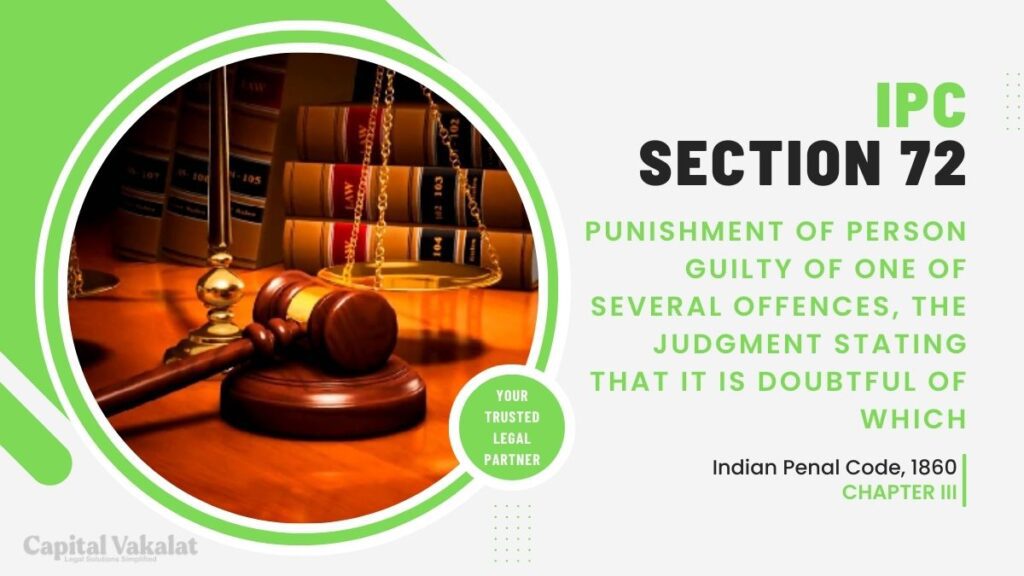In the realm of legal jurisprudence, Section 72 of the Indian Penal Code (IPC) holds a unique position. It deals with a scenario where a person is accused of committing one of several offences, and the judgment is rendered in such a way that it expresses doubt regarding which specific offence has been committed. This legal provision serves to ensure that justice is delivered fairly, even when the facts are not entirely clear-cut.

In this article, we will delve into the nuances of Section 72 IPC, exploring its significance, interpretation, and implications.
Understanding Section 72 IPC
The Basics of Section 72
Section 72 of the IPC is a provision that comes into play when an individual is accused of committing one or more offences, and the court is uncertain about which particular offence has been committed. It acts as a safeguard against potential miscarriages of justice by allowing for a broader interpretation of the facts presented during a trial.
The Purpose of Section 72
The primary purpose of Section 72 is to ensure that even if there is doubt regarding the precise offence committed, the accused is not left unpunished. It seeks to strike a balance between the need for clarity in criminal proceedings and the imperative of ensuring that those who violate the law face appropriate consequences.
Application of Section 72
This provision is typically invoked when the evidence presented in a case is ambiguous or when it is unclear which specific offence should be charged. In such situations, the court has the authority to hold the accused liable for the offence it deems most likely to have been committed based on the available evidence.
Significance of Section 72 IPC
Ensuring Accountability
Section 72 serves as a vital tool for holding individuals accountable for their actions, even in cases where the facts are not straightforward. This ensures that justice is not compromised due to uncertainties or technicalities.
Preventing Evasion of Punishment
Without Section 72, individuals could potentially evade punishment by exploiting legal ambiguities. This provision helps close such loopholes in the justice system.
Upholding Legal Principles
By allowing for a flexible approach to criminal cases with ambiguous facts, Section 72 aligns with the fundamental principles of fairness and justice in legal proceedings.
Challenges and Controversies
Potential for Abuse
Critics argue that Section 72 could be misused by authorities to unfairly target individuals, especially when evidence is lacking or inconclusive. Therefore, its application must be scrutinized carefully to prevent abuse.
Balancing Act
Determining which offence to charge an accused with under Section 72 requires a delicate balance between legal interpretation and factual evidence. Striking this balance can be challenging for judges.
Conclusion
In the world of criminal law, Section 72 IPC plays a pivotal role in ensuring that justice prevails even when the specifics of an offence are unclear. It upholds the principle that no one should escape accountability solely due to ambiguities in the evidence. While its application requires careful consideration, this provision stands as a testament to the commitment of the legal system to fairness and equity.
FAQs
What safeguards are in place to prevent the misuse of Section 72?
The judiciary closely examines cases invoking Section 72 to ensure it is not misused for unfair targeting of individuals.
Is Section 72 applicable only in India?
Yes, Section 72 is a provision in the Indian Penal Code and applies exclusively to cases within the jurisdiction of Indian courts.
How does Section 72 benefit the accused?
It ensures that even when there is uncertainty about the specific offence, the accused can still be held accountable for their actions.
Can the application of Section 72 lead to a reduced sentence for the accused?
Yes, in cases where there is doubt, the court may choose to charge the accused with a lesser offence, resulting in a reduced sentence if convicted.